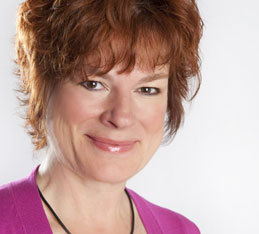
District: At Large
Age: 56
Occupation: Vice President of Marketing for Holt Brothers Construction; Executive Director of Holt Brothers Foundation
Incumbent: Yes, 6 years
Website
Why should constituents elect you?
I think over the past six years that I’ve been a proven leader in council. I’ve had major accomplishments in terms of bringing together the entrepreneurial community, and working on transit-related issues. So I think that my record stands on its own, and I’m anxious to continue working on things that I haven’t finished yet.
Many issues taken up by the state legislature have a direct impact on Raleigh. How can Councilors work better with the state legislature on those issues?
Well, you know, we have to—I think that there’s really a need for strong local leadership, in light of the actions of the General Assembly. I think that we—when I say we—I mean collectively, we’re not prepared for what lays ahead. We have hired a lobbyist who I think can help us improve communication, but I think that we need strong local leadership to have a voice, I think that we need to be at the General Assembly, I think that we need to be contacting our legislators, and I think we need to let them know how they’re hurting job growth and other things that are really important to our future success. So in other words, we need to show leadership, and we don’t need to be afraid.
Raleigh continues to grow at a good pace, which affects everything from our water quantity to our infrastructure. How do you feel Raleigh can become more proactive about managing that projected growth?
Well I think we’ve done that already through the passage of our new comprehensive plan, and a new UDO [unified development ordinance]. This really guides growth into areas where we’re focused on, you know, redevelopment, density, and you know, having people live in areas where we can improve transit options, and I think going forward it improves the quality of life. For the past 10 years, we’ve spent a lot of money on building new infrastructure, like water and sewer, but if we focus on these growth areas and really try to bring people and businesses to those growth areas, we can reduce some of these costs and really continue to improve some of those services.
What do you think are the best and worst decisions made by the Council these last two years?
The worst would be—and this is my perspective, my colleagues disagreed with me—but I think the worst decision we made was firing the city manager. I think it was a critical time, it was a bad timing issue, I also just disagreed with the decision. I think it’s proven to be a distraction as we move forward, but we are moving forward, and my hope now is that we will hire a great person who will continue to build on what we’ve—you know, what Russell [Allen] and Mayor Meeker have built on the past 10 to 12 years.
So let’s see, the best decision in the past two years. I would say it’s been, and I guess I might be biased on this, but I think it’s the resources we’ve put toward building an infrastructure to support innovators and entrepreneurs in our city. You are seeing the results of that, in that we now have a very high energy group of entrepreneurs who are staying here and starting their own companies. There was an announcement yesterday by two companies, The American Underground and HQ Raleigh. One, American Underground, is coming here to open up new entrepreneurial space, and HQ Raleigh is expanding space and moving into new area in the Warehouse District. I think together with that, having Citrix, providing incentive for Citrix to locate in the Warehouse District was a really good decision, and also supporting Red Hat. So I think it’s the work that we’ve done in the areas of entrepreneurship, job creation, and supporting that type of atmosphere where you know, we attract talent and we attract businesses.
Raleigh voters will decide whether to approve bonds for a transportation plan. Do you support the bond? If so, what would be your priorities?
I do support the bond, and you know, I think that most of the priorities are in there, however, I think going forward, we also need to look at how we’re going to fund other priorities, such as Capital Boulevard. A lot of time and effort went into that, and we need to figure out how we’re going to fund major projects like that, not just you know, intersection and road improvements. And another thing is continuing to look at the New Bern Avenue corridor, that’s our most heavily used bus transportation line. And you know, making that more friendly, a better experience for bus riders, but also helping to improve economic development opportunities there.